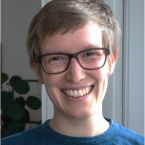


Supervisor: Michael Wagner
PhD student: Katharina Kitzinger
Group: Division of Microbial Ecology, Department of Microbiology and Ecosystem Science, Centre for Microbiology and Environmental Systems Science & MPI for Marine Microbiology at Bremen
Nitrification, the oxidation of ammonia to nitrate via nitrite, is a key process of biogeochemical nitrogen cycling, carried out by specialized microorganisms, nitrifiers. Despite their importance in man-made and natural systems, many aspects of their physiology are unknown. Here, cultivation-dependent and -independent stable-isotope-based approaches were used to study nitrifier metabolic versatility and their environmental relevance.
The isolation, physiological and genomic characterization of the novel nitrite oxidizer Candidatus Nitrotoga fabula from wastewater provided new insights into the evolution of nitrite oxidation and showed that Nitrotoga has the potential to utilize hydrogen and sulfite as alternative electron donors. Metabolic versatility is also important for nitrifiers in the environment. Ammonia oxidizing archaea (AOA), which can constitute up to forty percent of the marine microbial community, utilized the organic nitrogen compounds urea and cyanate as additional energy and nitrogen-sources in the Gulf of Mexico (GoM), despite lacking known enzymes for cyanate breakdown. Compared to AOA, Nitrospinae, the main marine nitrite oxidizers, are rare. Nitrite does not accumulate in the ocean, therefore, Nitrospinae must be highly active. This was shown using single cell measurements in the GoM. Nitrospinae additionally had much higher energy efficiency and growth rates than AOA. Additionally, Nitrospinae met most of their nitrogen demand by assimilating organic nitrogen. The utilization of organic nitrogen compounds is likely a key factor explaining the environmental success of AOA and Nitrospinae. Additionally, a new method for stable isotope incubations was developed that eliminates cross-feeding and thereby allows to directly link specific microorganisms to environmental substrate-turnover.
My PhD was carried out as joint PhD between the University of Vienna, supervised by Prof. Michael Wagner, and the Max Planck Institute for marine Microbiology/University of Bremen, Germany, supervised by Prof. Marcel Kuypers.
Please find a list of publications here.